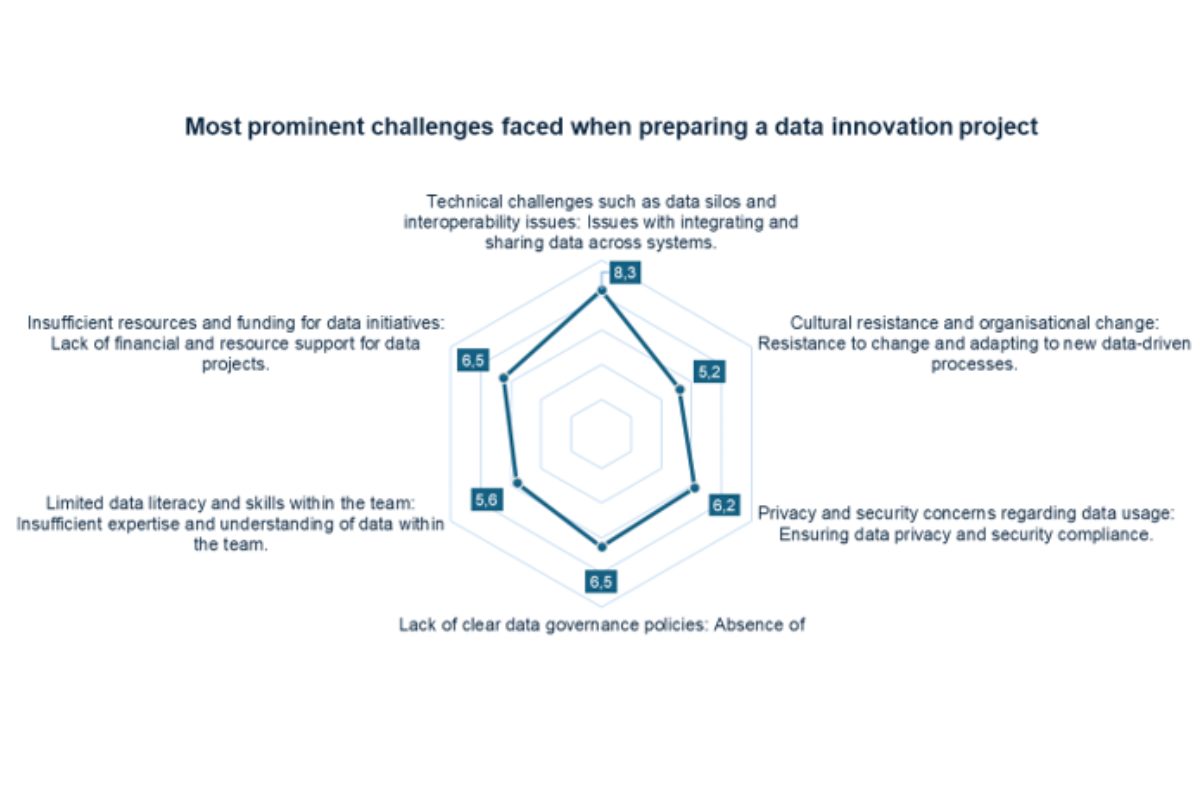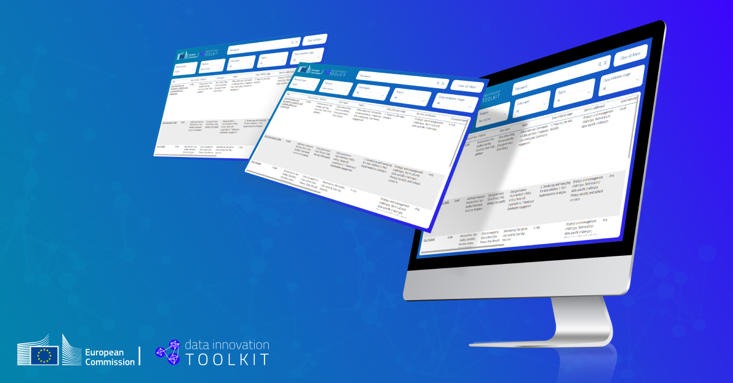
On the 19th of June 2024, the Digital Innovation Team hosted a collaborative workshop focused on how to facilitate the management of data initiatives across the public sector. The goal of the webinar was to present the Data Innovation Toolkit project to experts from both within and outside the European Commission. This diverse team included different professional profiles, such as tech-savy innovators, governance guardians, experienced policy-makers, novel analysts and steward strategists, This way, the organizing team could gather insights on how initiatives rooted in data analysis are being handled across different countries and explore how a resource compendium can help people foster innovative projects within the public sector.
The workshop covered the following topics:
-
Preparing and managing a data-driven project
-
Post-implementation strategies
-
Useful resources related to the project’s development
The workshop featured interactive group discussions, live questions and open space for discussions.
Highlights and key results
1. Key Takeaway: Diverse Data sources and challenges to start a project
Participants discussed various data sources that can be utilised to manage a data innovation project, including publicly available open data sets, internal databases, and records. The emphasis was on how to leverage these sources to enhance new projects. The two preferred options that people are utilising to gather data in that context are (1) internal databases and records - which is data collected within the organisation from operations and activities and (2) survey and research data that is gathered through surveys, academic or market research.
Participants were also asked to comment and rank from 0 to 10 the main challenges that they face when preparing a data-driven initiative. The results presented are an average of the rankings given by participants. .

Figure I: Challenges faced when preparing a data innovation project
When discussing the difficulties faced in public sector data innovation projects, it was clear that technical challenges top the list with a score of 8.3. These include issues like data silos and interoperability problems, which can make integrating and sharing data across different systems a real headache. There is also a notable lack of clear data governance policies, scoring 6.5, which points to the need for better-defined rules and procedures for data management. Financial constraints are another big hurdle, with insufficient resources and funding also scoring 6.5, highlighting the need for adequate investment in these projects. Privacy and security concerns, which score 6.2, add another layer of complexity, emphasising the importance of protecting sensitive information.
The human factor cannot be ignored either; limited data literacy within teams scores 5.6, showing that many people still need training and development in data skills. Lastly, cultural resistance to change, scoring 5.2, reminds us that adapting to new, data-driven ways of working is often met with reluctance. Together, these challenges illustrate the multifaceted nature of obstacles in public sector data innovation, requiring a balanced approach to overcome them.
2. Key takeaway: Stakeholder identification and engagement
A significant takeaway of the discussion was the importance of engaging stakeholders through consultations, internal meetings, and brainstorming sessions. Using predefined stakeholder engagement strategies ensures that diverse perspectives are included in data projects. The two preferred options that people are utilising to identify stakeholders for their data innovation project were (1) internal meetings and brainstorming sessions and (2) determining the data holder who provide access to necessary data.
Participants were also asked to choose their preferred way to assemble cross-functional teams and role definition. And the two highlighted options were (1) identifying the necessary skills sets and (2) defining roles collaboratively.
3. Key takeaway: Project design and feedback
The workshop underscored the need for robust project design, incorporating participant feedback. Participants highlighted the importance of design simplicity and clarity for effective communication of data insights.
Compendium

It was brought up during the workshop that even though there are a lot of resources available, like frameworks, data acquisition contracts, and data governance policies, they are frequently underutilized because a practical list of these links and resources is lacking. Most of the time, such unawareness causes these documents to remain siloed and underutilized.
To try to overcome this issue, the Data Innovation Team has developed a compendium which aims to provide a comprehensive collection of the available resources to help people throughout their data innovation journey. This compendium facilitates access to existing tools and methodologies, allowing users to leverage these materials and making their innovation process easier, rather than reinventing the wheel. By centralising these assets, the compendium streamlines the process of finding and applying the right solutions, in the end, facilitating the management of data innovation projects.
Next Steps
Following the workshop, we are committed to integrating the participants' feedback and exploring further opportunities for collaboration with them. We are organising follow-up testing of the compendium, which will be published soon, and a minimal viable product which will include several tools to help data enthusiasts setting up and managing their data-driven initiatives.
